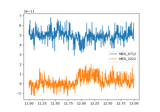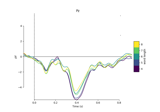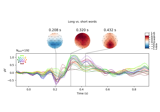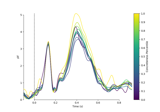mne.datasets.kiloword.data_path¶
- mne.datasets.kiloword.data_path(path=None, force_update=False, update_path=True, download=True, verbose=None)[source]¶
Get path to local copy of the kiloword dataset.
This is the dataset from 1.
- Parameters
- path
None|str Location of where to look for the kiloword data storing location. If None, the environment variable or config parameter MNE_DATASETS_KILOWORD_PATH is used. If it doesn’t exist, the “mne-python/examples” directory is used. If the kiloword dataset is not found under the given path (e.g., as “mne-python/examples/MNE-kiloword-data”), the data will be automatically downloaded to the specified folder.
- force_updatebool
Force update of the dataset even if a local copy exists.
- update_pathbool |
None If True, set the MNE_DATASETS_KILOWORD_PATH in mne-python config to the given path. If None, the user is prompted.
- downloadbool
If False and the kiloword dataset has not been downloaded yet, it will not be downloaded and the path will be returned as ‘’ (empty string). This is mostly used for debugging purposes and can be safely ignored by most users.
- verbosebool |
str|int|None Control verbosity of the logging output. If
None, use the default verbosity level. See the logging documentation andmne.verbose()for details. Should only be passed as a keyword argument.
- path
- Returns
References
- 1
Stéphane Dufau, Jonathan Grainger, Katherine J. Midgley, and Phillip J. Holcomb. A thousand words are worth a picture: snapshots of printed-word processing in an event-related potential megastudy. Psychological Science, 26(12):1887–1897, 2015. doi:10.1177/0956797615603934.



